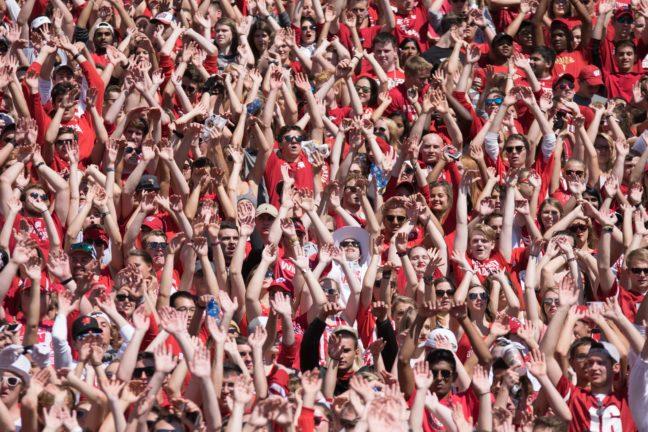Attending school in 2020 is uncharted territory for every student in the United States. For incoming college freshmen, it is an even more uncertain environment to navigate.
The University of Wisconsin’s Smart Restart outlined UW’s approach to instruction, dining and housing during the COVID-19 pandemic. The plan emphasized the shared responsibility of students and staff to adhere to a set of instructions that protects themselves and their fellow Badgers.
The Smart Restart plan, requires COVID-19 testing for on-campus housing residents, face coverings in all indoor public spaces, social distancing, primarily virtual classes, limited spaces for gatherings and modified dining amongst other restrictions. UW freshman Simon Bushmaker said these guidelines can complicate befriending other students and making genuine connections.
“It is tough to meet people because clubs are canceled, and there is social distancing in the dorms,” Bushmaker said.
According to the CDC, wearing a mask can significantly slow the spread of COVID-19. Madison residents are required by Dane County to wear masks in any indoor public areas.
UW’s Smart Restart plan implemented strict guidelines regarding face coverings. But freshman Aliya Glasper observes students continuously violating these rules and worries about the repercussions of refusing to wear a mask.
“It is frustrating to see people gathering in large groups without masks because they are putting other people at risk, not just themselves,” Glasper said. “It’s pretty simple — you can be together and wear your mask.”
According to Johns Hopkins Medicine, teens and young adults are at less of a risk of dying from the virus but should still follow CDC guidelines to avoid contracting the virus or spreading it to at-risk populations.
Freshman Mairead Morahan said she considered the virus less of a health threat and more of an inconvenience. Morahan added the inevitability of contracting the virus in a college dorm created a culture of carelessness regarding one’s own wellbeing.
“I am nervous but at the same time, we are probably all young enough that if we get sick, hopefully none of us will get too sick,” Morahan said. “I feel guilty giving it to people.”
Smart Restart requires freshmen living in residence halls to be tested for COVID-19 when arriving on campus in addition to free bi-weekly testing. Those who test positive are required to quarantine in isolation dorms on campus or return home if they are able to do so.
Bushmaker said he would rather stay in the isolation dorms than head home because he views quarantine as a potential social opportunity.
“I walked past the isolation dorms today, and it seemed kind of fun,” Bushmaker said. “It reminds me of the Breakfast Club.”
According to the UW COVID-19 Dashboard, the positivity rate on campus has gone from a 1.5% positivity rate to 4.4% with most reported positive cases in early September. Freshman student Elsa Palmieri, believes the recent spike can be attributed to student disregard for social distancing.
“A lot of students are just focused on themselves and getting their freshman experience,” Palmieri said. “Obviously that is something that everyone wants, but thinking like that is selfish because they could ruin it for the people who are following the guidelines and then get us all sent home.”
Violation of campus rules can result in suspension or dismissal from UW, as stated by the Smart Restart plan. But, freshman student Michael Ovsak said he does not anticipate mass suspensions and does not seem concerned about a major outbreak.
“If they don’t send us home after the first round of testing, I think we are set to stay on campus,” Ovsak said. “Madison has a safety cushion in place for us.”
According to the CDC, virtual classes present the lowest risk of COVID-19 spread. UW’s Smart Restart plan states that 45% of classes will have an in-person component. All in-person components require face coverings and social distancing.
Families, off-campus students deal with financial impact of COVID-19
Despite the lack of in-person classes, UW’s Smart Restart plan states that tuition costs will not be lowered. Freshman student Olivia Dikeman said she believes the unreduced tuition price takes advantage of students financially.
“I’m critical because I don’t do well with an online format, but I also agree with why we have it,” Dikeman said. “I feel like I’m wasting my money.”
According to the Sept. 2 Daily Briefing on campus COVID-19 data, 13 students were in on-campus quarantine and 13 students were in on-campus isolation. But, Smart Restart said they expected an increase in cases as more students arrived on campus.
“The spread is inevitable … when so many kids don’t take it seriously. A large portion of students take it seriously but not enough people do, and that is what is going to get us kicked off campus,” Palmieri said. “But I am just glad we got to come back.”


